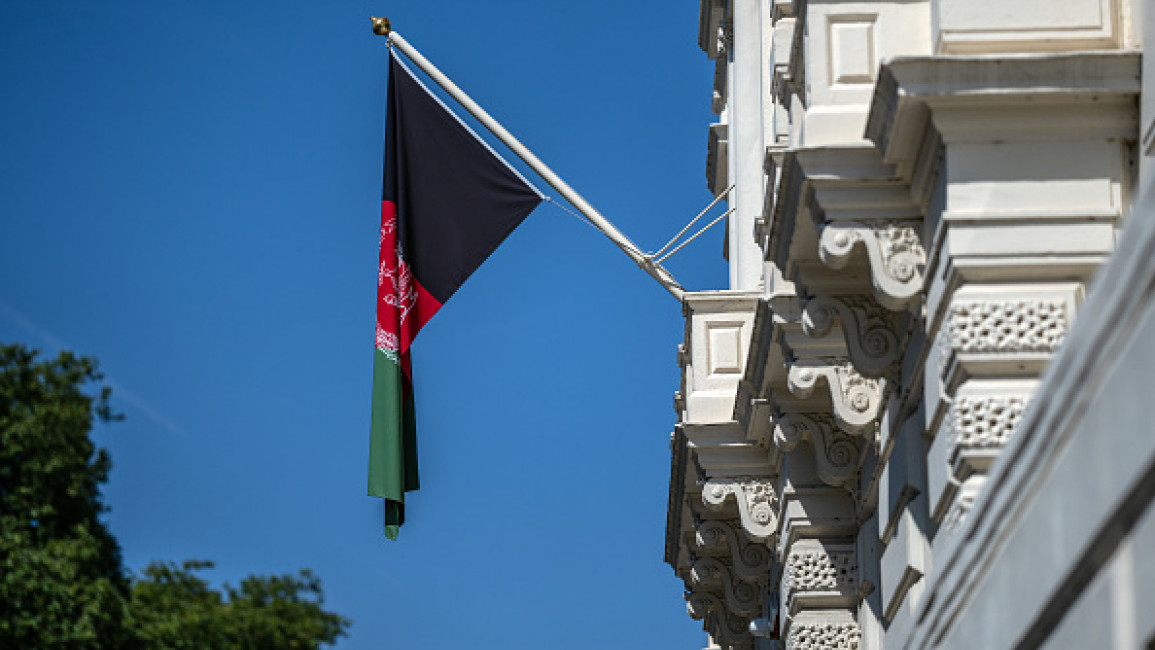UK to shut down Afghan embassy after warnings from Taliban
The UK has ordered Afghanistan’s embassy in London to be closed by September 27, the Afghan ambassador has confirmed.
In a post on social media platform X, Zalmai Rassoul announced that the decision was made by British authorities, amid ongoing disputes over the control of Afghan embassies in Western countries.
Currently, dozens of embassies continue to operate, run by diplomats affiliated with the former US-backed Afghan government of deposed President Ashraf Ghani.
"We thank and appreciate all colleagues, citizens, and related institutions who have sincerely cooperated with the Afghan Embassy in London during this period," Rassoul said in a statement.
In July, Afghanistan's unrecognised Taliban government sent letters to 13 nations, including European countries, Canada, and Australia, asserting that consular services provided by embassies managed by diplomats from the former Afghan government were invalid without Taliban involvement.
In response, countries such as the United States and now the UK have shut down Afghan diplomatic missions.
According to Afghan independent news network Amu TV, Germany had urged the Afghan embassy in Berlin to engage with the Taliban, becoming the only country to formally respond to the Taliban’s letters.
On Saturday, a protest outside Germany's Foreign Ministry saw Afghan citizens opposing any diplomatic engagement with the Taliban, drawing attention to the movement's human rights record.
In the UK, Afghan rights groups have expressed fears over the abrupt closure of the Afghan embassy in London, arguing that it has left Afghan citizens dealing with the consequences.
Mohammed Asif, director of UK-based organisation Afghan Human Rights Foundation, told The New Arab that rights campaigners are "sad and angry" that the embassy is set to close its doors to Afghans.
Accusing both the UK and US of propelling the Taliban back into power, Asif added that the British government should be held accountable for the "current chaotic situation" in Afghanistan.
"Many Afghans need consular assistance and help on the daily basis especially with passports and birth certificates," he continued.
"The Afghans will face practical difficulties as they will struggle to obtain help from anywhere else."
Legal experts have pointed out that as a result of the absence of an internationally recognised government in Afghanistan, there will be significant challenges for Afghan nationals abroad.
Last month, the Taliban announced that only consular services from five Afghan embassies—located in Germany, the Netherlands, Spain, Bulgaria, and the Czech Republic—would be recognised by their regime.
European countries are expected to hold a special meeting on 28 September to decide the future of Afghan embassies across the continent.
While many nations have refused to recognise the Taliban's authority, some countries, such as China and the United Arab Emirates, have handed over their Afghan embassies to diplomats appointed by the Taliban.
Despite being in power for three years, the Taliban government in Afghanistan remains unrecognised by the international community.
The group's record of human rights abuses and its connections to extremist organisations have isolated its leaders, effectively rendering them outcasts and excluding Afghanistan from the global financial system.
The New Arab has approached London’s Afghan embassy and the UK ForeignOffice (FCDO) for comment.




 Follow the Middle East's top stories in English at The New Arab on Google News
Follow the Middle East's top stories in English at The New Arab on Google News
![People gathered around the rubble of destroyed houses to search for survivors [Getty]](/sites/default/files/styles/image_330x185/public/2024-11/GettyImages-2184733820.jpg?h=199d8c1f&itok=NiM1LO2f)

